
BUSINESS:
Finnair experiments with weighing passengers
COMMUNITY:
Full house at Danish Info-meeting in Bangkok
INTERNATIONAL:
Thailand offers medical coverage for tourists



BUSINESS:
Finnair experiments with weighing passengers
COMMUNITY:
Full house at Danish Info-meeting in Bangkok
INTERNATIONAL:
Thailand offers medical coverage for tourists


Our educational stay and play group emphasises child development, building strong relationships and having fun with new f riends.
Mondays and Fridays
8.20am - 10.20am 300 THB per session
All children from birth to 2 years of age are welcome. Children must be accompanied by a maximum of 2 parents or carers.



Re f resh m ents for adults and children provided each session



Through learning environments such as our on-site Outdoor Classroom, we inspire children to discover passions and interests by exposing them to experiences in and beyond the classroom. This combined with the rigour of a strong academic programme gives them the foundations to become global citizens who shape their world through independence, empathy, creativity and critical thinking.
The Danish Church in Thailand opened on 1 March a community house in Soi Ruam Rudi 4 in walking distance from BTS station Chidlom. This exciting development marks a significant milestone for the Nordic community in Thailand, offering a space for connection, camaraderie, and cultural exchange.
Many may fondly recall the vibrant community hub managed by the Swedish Church in Sukhumvit soi 33, which served as a gathering place for not only churchrelated events but also a wide array of cultural and social activities. Its popularity extended beyond the Swedish community, welcoming individuals from across the Nordic region and beyond.
The significance of community houses like the one we now have in Soi Ruam Rudi cannot be overstated. They serve as vital centers of cultural exchange, providing a home away from home for expatriates and a platform for sharing traditions, fostering friendships, and supporting one another in times of need. These spaces play a crucial role in preserving and celebrating Nordic identity while promoting inclusivity and understanding among diverse communities.
With the Danish Church’s new community house, we have an opportunity to revitalize and expand upon this tradition of community building. Beyond its role as a place of worship, the new house promises to be a dynamic hub for cultural events, educational programs, and social gatherings. Other community organizations, like Thai Nordic Association, can and should rent space for their activities here. So should also the four Nordic chambers of commerce. And all the Nordic embassies in Bangkok.
It is vital that the Nordic community in Bangkok grabs this opportunity and supports the house. This is urgent as the house needs to be a success fast. Let us embrace this new chapter and rekindle the spirit of our Nordic community and celebrate that we finally once again have a place that we can call home.
 Gregers Moller Editor in Chief
Gregers Moller Editor in Chief
ScandAsia is a printed magazine and online media covering the people and businesses of Denmark, Sweden, Norway, Finland living and working in China, Hong Kong, Thailand, Malaysia, Singapore, Indonesia, Philippines, Vietnam, Cambodia, Laos and Myanmar.
Who should subscribe:
ScandAsia subscribers are typically Nordic expats and companies from the Nordic countries living in and active in Asia. Another group of subscribers are Nordic people living in the Nordic countries who subscribe to ScandAsia for personal or business reasons. We also have many Asian subscribers, who for a wide range of reasons are following the activities of the Nordic expats and companies via a subscription to ScandAsia.
The ScandAsia magazine is produced every month and distributed to all print version subscribers via postal services and to all eMagazine subscribers via email. Subscribing to the eMagazine is FREE - simply sign up on the ScandAsia.com website.
Become a ScandAsia user/ get free digital ScandAsia magazine or paid subscription via www.scandasia.com!
Publisher : Scandinavian Publishing Co., Ltd. 211 Soi Prasert Manukitch 29 Prasert Manukitch Road Bangkok 10230, Thailand
Tel. +66 2 943 7166-8
Fax: +66 2 943 7169 E-mail: news@scandasia.com
Editor-in-Chief : Gregers A.W. Møller gregers@scandmedia.com
Advertising : Finn Balslev finn@scandmedia.com
MB: +66 81 866 2577
Graphic Designer : Peerapol Meesuwan Peerapol@scandmedia.com
Production Manager: Sopida Yatprom
Printing : Win-Win Digital Printing Co., Ltd.

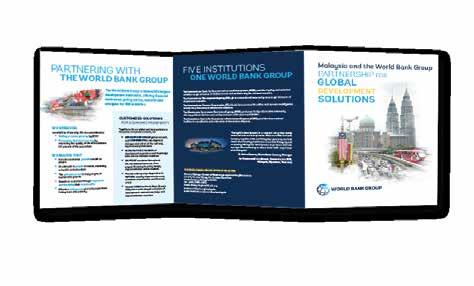
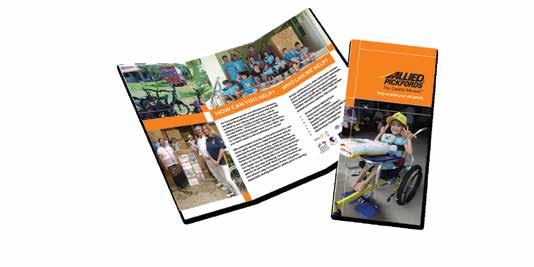

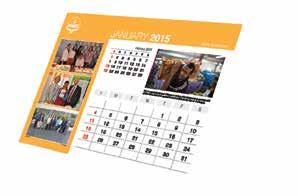
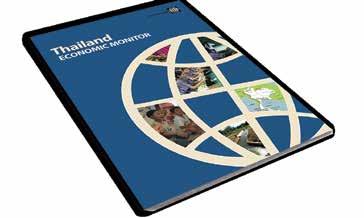



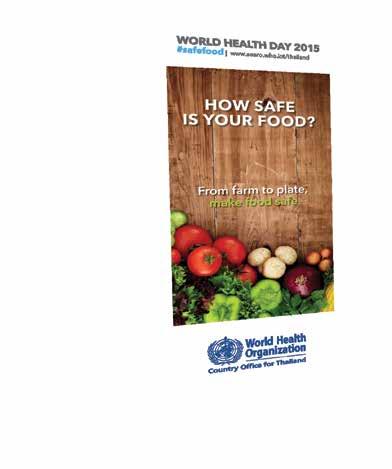
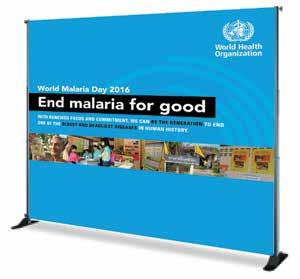

Thailand has launched a scheme which offers tourists up to 18,600 US dollars, equivalent to 500,000 Thai baht, of medical coverage in the event of an accident and up to one million baht in case of death. The new insurance was announced by the tourism minister of Thailand, Sudawan Wangsuphakijkosol, on 15 February 2024.
The scheme covers tourists in Thailand from 1 January 2024 and will initially run until 31 August 2024. Tourists can claim the compensation within 15 days of their accident and the compensation is expected to be paid 15 days later. Thailand allocates 50 million baht to the campaign.
The government also underlines that accidents caused by negligence, intent, illegal acts or risky behavior will not be covered by the scheme.
According to Sudawan Wangsuphakijkosol the campaign has the aim to assure tourists that traveling in Thailand is safe. It is especially targeted towards young backpackers who make out a large part of the tourists in Thailand.
who have received a visa on arrival – which is typically the case for tourists coming from the Nordic countries.
Ms. Kantara S. Olofsson, Public Relation & Communication Coordinator of the Tourism Authority of Thailand (TAT) Stockholm Office, explains that the key to understanding the coverage of the scheme is in this sentence from the announcement:
“Foreign nationals with valid passports with tourist visas visiting the Kingdom of Thailand between 1st January – 31st August 2024. Except in the case where a visa is not required for certain types of aliens in special cases, this must be for the purpose of not pursuing a career or earning income or have behavior that shows that they did not come here mainly for tourism.”
“People with a visa on arrival with a purpose of traveling are included. People who are on any type of tourist visa are included. [Howev-

Documents for applying for the compensation should be submitted to the Provincial Tourism and Sports offices or at tourist assistance centers in Bangkok. Tourists should register on the Thailand Traveller Safety website.
The medical insurance will cover both tourists who have obtained a tourist visa before their arrival to Thailand, as well as all tourists
er,] people who came to work and earn income - even if they have a tourist visa - are excluded,” she says.
Ms. Kantara S. Olofsson added that the Ministry of Tourism and Sports had informed her that any long-stay visa (including Non-Immigration Visa) are excluded from the scheme.
Foreigners owe the Malaysian government the sum of RM100 million in unpaid medical bills. The foreigners owing the money are spread across 38 countries. In Southeast Asia major countries are India, Myanmar and Indonesia. Outside Southeast Asia the countries include both Finland and Sweden.
The Malaysian government explains the unpaid bills with varied reasons. Some are basically owed by people who just disappear after treatment, promising to pay later. Some patients are also unregistered refugees who are afraid of getting deported.
“Treatment was given to them based on principles of human rights and compassion, even if their sta -

tus is dubious or they are undocumented immigrants. Despite their registration and deposit payment, they refused to settle the bills. Their excuses include lack of funds, promises to pay later, or simply disappear-
ing,” said a source to the media New Strait Times.
The amount has been confirmed by health director-general Datuk Dr Muhammad Radzi Abu Hassan.

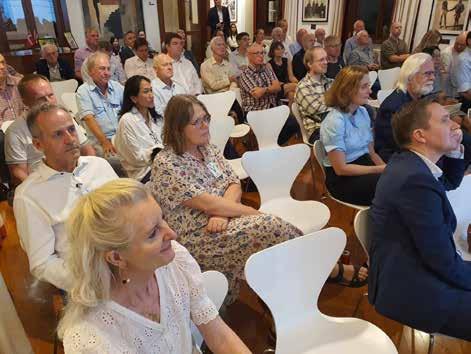
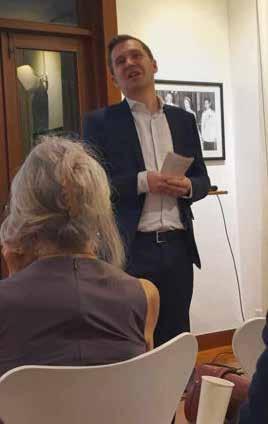
Danes Worldwide and Dancham had sold all 60 seats for the information meeting for Danes in Bangkok on Wednesday 7 February – “but we could easily have been a hundred people here tonight,” said Thailand Representative of Danes Worldwide, Marianne Edelmann Kruger in her welcome address. “That’s how many we have had to turn down!”
The limitation was the size of the living room at the residence of the Danish Ambassador H.E. Mr. Jon Thorgaard. But maybe in the future these meetings would be held more frequently, Mr. Thorgaard said, because the embassy had noted the apparent need in the community for briefings like this on the latest rules and regulations. The Ambassador also introduced Consul Dennis Blicher who this spring will take over as Head of the Visa Section at the Embassy, an area he has prior experience with from the Danish Embassy in London.
Also Dancham Secretary General Michael Andersen welcomed
the many participants, sharing among other things his hands on experience with the surprising issue that Danes have to obtain a new Thai driving license if they loose their Danish license while living in Thailand – you cannot get a new Danish one unless you move back to Denmark.
From Danes Worldwide, the welcome speech was held online by Secretary General Michael Bach Petersen. He explained about the key deliveries that a membership of Danes Worldwide provides but the meat of the evening was delivered by Lisbeth Kjersgaard, legal advisor for Danes Worldwide.
Lisbeth Kjersgaard explained in simple and clear slides the rules and regulations regarding issues of particular interest to Danes in Thailand: keeping or re-applying for Danish citizenship, family unification in Denmark, driving license issues, pension issues and higher education in Denmark.
If the participants paid attention, it would be hard to find a
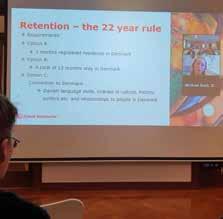
question that she had not already covered. That saved a lot of time in the half hour set aside for Q&A. The questions were drilling into specific situations and she had also clear advice in these cases.
The meeting started at 6.30 pm after half an hour for snacks and drinks and ended on 9 pm.
“What an excellent presentation – the rules are actually not that complicated,” was a frequent remark as the participants left the Embassy shortly after 9 pm.
The airline Finnair started a voluntary weighing policy at departure gates Monday the 5 February 2024. At Helsinki Airport passengers were asked if they would like to get weighed before entering the airplane.
Finnair started this experiment to better estimate the weight of its plane’s cargo before takeoff. The experiment was very well received, and to the airlines surprise, it already had 600 volunteers by Wednesday.
“Our customers have taken it really positively so far. We’ve been quite surprised by people wanting to take part”, says Suvi Aaltonen, a Finnair spokesperson to the media The Guardian.
The airline insists that passengers are not being penalized for their numbers on the weighing scale, and that the numbers are kept discreetly.
Those who agree to take part are thanked for their efforts with a small gift of a reflective baggage tag.
The weight of the passenger and their hand luggage is saved as one number. The weigh-ins are set to continue until May, and will eventually be used for aircraft balance and loading calculations from next year and until 2030.
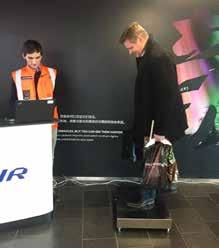
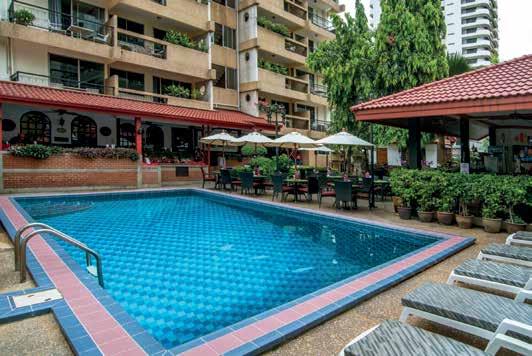
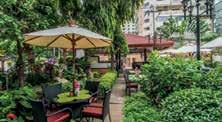

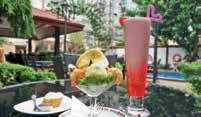

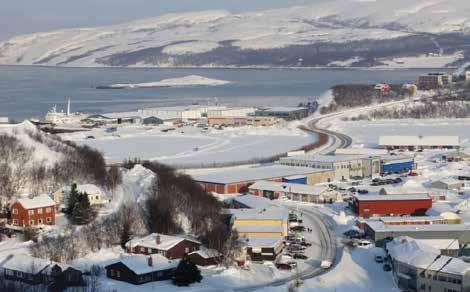
Way up north, in the Norwegian town of Kirkenes, Chinese energy buses will now be driving on the icy roads. The buses have been constructed
The battery thermal management system and electric control technologies make the car suitable for the harsh conditions. The technology has been proven to work even when the temperatures are drastically below zero.
The success of the energy buses serves as a beacon of hope for environmentally friendly transportation modes in other regions, where harsh weather conditions pose a challenge.
Source: bnnbreaking.com
The Danish brewery Carlsberg wants to focus on the expanding market in Asia, specifically in China, Vietnam and India in their 2027 plan. The company wants to accelerate their growth with 4-6 % of their turnover, compared with 3-5%, which was the earlier goal.
According to Carlsberg, the company will also focus on Beyond Beer, meaning cider, seltzers and alcohol free beer. Furthermore, the brewery wishes to better the systems and processes in place.
Source: fodevarewatch.dk

The Swedish company Electrolux, mostly known for creating Swedish home appliances, will shut down their regional headquarters in Singapore in May 2024.
It has been stated by sources that this primarily will affect the regional employees, who will be laid off. Although a handful has been offered relocation packages according to the media The Star.
Electrolux’s director of communication for Asia-Pacific, Middle East and Africa (Apac and MEA) transformation, Samar Refai, commented to The Star:
“The imminent closure of Electrolux’s regional office in Singapore ultimately means that we will need to part ways with some of our regional employees. Those who are impacted are offered the maximum

level of support, during the upcoming transition period, and are treated with utmost respect,” said Refai, without adding more detail
Electrolux says that the shutdown has been known internally in
the company since 23 December 2023. They also add that the Apac and MEA commercial leadership will relocate to Bangkok.
Source: www.thestar.com

European Union countries installed 40% more solar panels in 2023 than the year before. The main supplier being China. There are some cases where 95% of the solar panels were imported from China according to Energy Agency’s data.
The massive presence of China on the market however makes it very difficult for green energy corporations locally in Europe.
The European countries are divided on how to react to this problem. If the import gets turned down, then it might kill the rapid expansion of green energy.
Source: www.channelnewsasia.com
“Pioneering
possible” is what Business Sweden is doing in Malaysia under the leadership since 2022 of Trade Commissioner Emma Broms.By Joakim Persson
Ms Emma Broms is an economist educated at the School of Economics in Stockholm, Sweden, who began her career, within communications, in the start-up world. Her role in Malaysia has seen her not only returning to her second stint with Business Sweden, but also to the Far East.
During her childhood, Emma spent some years in Hong Kong and she has worked as a project leader at Business Sweden in Sydney.
“After a number of years in other companies in Stockholm, I am back at Business Sweden and incredibly happy about that, especially to be in Southeast Asia, and particularly in Malaysia. And I have my husband and three children with me,” she begins.
She also shares that the family has moved with her to Kuala Lumpur and the children are all having a blast in school. Emma’s husband spends, aside from housework, a lot of time on doing medical research for his thesis work.
Her enthusiasm for Asia she explains as follows: “I’ve had a keen interest in this region ever since my years in Hong Kong when I was around 11-12 years old. That opened my eyes to the region. I have since returned on apprenticeship and school projects during my university studies. Now, it feels great to be here again and precisely during this period is also good timing, coming out of the lockdowns. Also, lots of Swedish companies have their eyes on Southeast Asia, as they are reviewing their value chains.”
“China is still an enormously important and large market for Swedish international companies, but those are spreading out more. Regardless of the market, you may not want to put all your eggs in one basket. We believe that Malaysia is one of those countries that will in some way benefit from it. And we have seen that happening,” she elaborates on the ‘China Plus One’ strategy.”
Higher profitability for Swedish Companies also indicates, states BS, a very strong recovery and it showcases Malaysia’s growth potential to Swedish companies looking for alternative production locations or business opportunities outside of Greater China or other typical focus markets in Asia.
”We see especially positive signs from consumer companies, where 80 per cent of the respondents were profitable,” says Emma.
And Malaysia’s foreign direct investments (FDI) has kept on growing during 2022 and 2023, including plenty of Swedish projects happening (several production plants were opened, such as by Vinda, Mölnlycke and SIBS) and more under way. In 2022, the amount of net inflow FDI in Malaysia amounted to approximately 17 billion U.S. dollars.
The overall businessfriendly climate and having access to well-trained staff are favourable factors in order to invest here
Malaysia continues to be a very promising investment destination and priority for Swedish companies, covering everything from industrial manufacturing, logistics hubs, and warehouses to consumer products.
“We can see new companies entering Malaysia from Sweden and for those already present it’s more about expanding your business here. We’ve seen a great deal of interest from Swedish companies in locating their manufacturing here and we have been involved in several openings of new factories, so for us it’s about being able to assist with that type of relocation.”
“It’s also due to a great interest in this region – which we are also seeing in the neighbouring countries,” she continues.
“The overall business-friendly climate and having access to well-trained staff are favourable factors in order to invest here,” she adds and elaborates: “For production and sourcing, it’s more about being able to have trained labour and cost efficiency. You find a good balance between well-educated staff and more cost-effectiveness than having the production in Sweden. You have good logistics, with a well-developed infrastructure, including several deep sea ports in west Malaysia, and also with 5G being rolled out through a countrywide network. So it’s a very strategic location, and with a relatively good business climate, that all in all makes Malaysia an attractive market.”
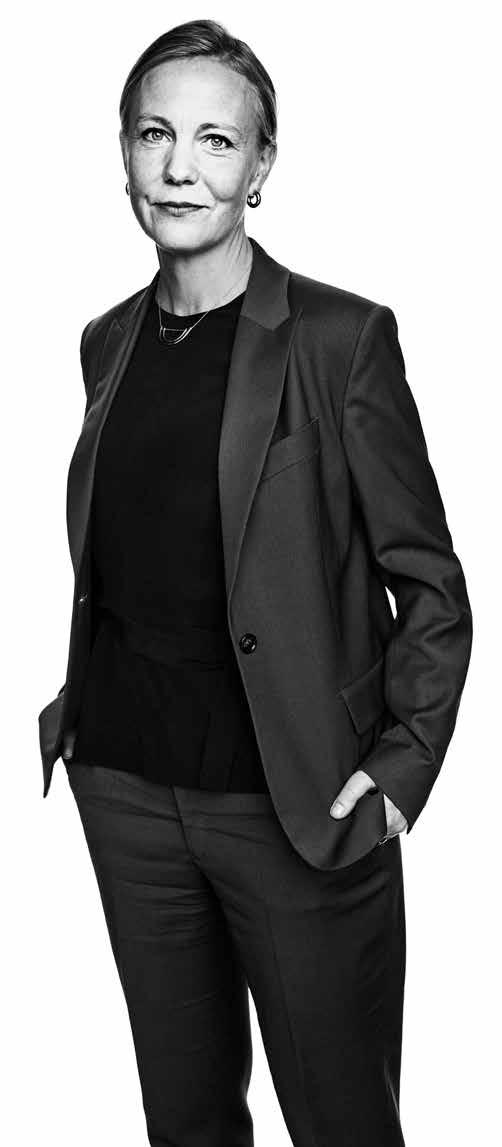
As a Swedish multinational you have to live up to the sustainability requirements regardless of the market you are in.
geographical location within the Indo-Pacific region – surrounded by economies with a high growth rate and its sustained track record of good ease-of-doing-business metrics – provides a promising economic outlook for the future and credibility to Malaysia’s target as a regional trade hub and its transition towards becoming a highincome nation.
“Even excluding growth, there is incredible activity here. And I sense great optimism. Many companies feel that Malaysia is heading in the right direction, both in terms of the business climate and also within an issue that we work a lot on and which is incredibly important around the world: sustainability and the green transition. Within this there is also huge activity on the part of Malaysia, with super commitment and desire to move forward –something that the Swedish companies also view very positively. Because as a Swedish multinational you have to live up to the sustainability requirements regardless of the market you are in.”
It should however be pointed out that access to skilled labour poses challenges (though less so for companies that have been present for a long time, shows the survey). “Due to Covid-19 there was a stop to foreign labour on all fronts. And this is lagging behind a bit. It’s also a balancing act of attracting FDI and local jobs. But of course there is a shortage of foreign blue collar workers, and as with all other markets, there is fierce competition for certain categories of skilled labour,” comments Ms. Broms.
“You often look at what your needs are, what your perspective is and what type of manufacturing it is. There’s no one size fits all, but Malaysia has a well-deserved and growing status as an attractive country to both source from and locate manufacturing in. For Swedish clients it’s often about looking at two or more markets at the same time and comparing; so the scope is then a little wider than just Malaysia.”
“Our offices in the region have very close cooperation, partly in exchanging experience and a large part of our business is that we work with consulting projects, market analyses, partner searches, M&As etc. It’s clear that Malaysia is interesting among the companies I meet, but the region is also interesting for them. Thus, there’s a super concrete collaboration that can look different from project to project in terms of markets.”
“And, we who are managers of the offices in the region also conduct collaboration through regional manager Emil Akander, who works tactically and strategically at this level,” Emma shares.
Competitively, BS’ survey points to how Malaysia’s
To this end, BS has launched a programme and carried out a number of activities focusing on cooperation between Sweden and Malaysia on green transition under the slogan ‘Pioneer the Possible’ (an initiative from Svenska Institutet used globally by Swedish agencies).
Malaysia’s twelfth development plan has ‘advancing sustainability’ as one of its themes, including ambitions to develop green mobility solutions and to increase renewable energy generation.
”Becoming carbon neutral by 2050, which is one of the most ambitious targets of its kind in the region, and their optimism in this area, is something Swedish companies can capitalise on. Malaysia’s eagerness to become more sustainable is further evidenced by the fact that they have, since 2010, had the second lowest increase in greenhouse gas emissions in the Asia-Pacific,” states the BS survey.
Here, digitisation also plays its part. “This has to do with the fact that the manufacturing sector is so big in Malaysia, accounting for a huge part of the GDP. So if you can make this sector not only greener through automation and digital solutions, but also more energy-efficient, you can come a long way. So this platform works with three themes: green mobility and transport; green production; and sustainable urban development,” explains Emma.
And involving the businesses in this is a must: “We have a number of companies that have been involved from the beginning, who are the main partners of the entire programme. Then it’s a matter of finding challenges and, above all, solutions for those challenges. That’s where we will create change - where companies talk to companies and you have policy makers partaking in the discussions. But it is incredibly important for us when we do this type of activity that we have companies that act as co-creators.”
The whole of Southeast Asia is also lagging behind on reaching the 2023 development goals, not least due
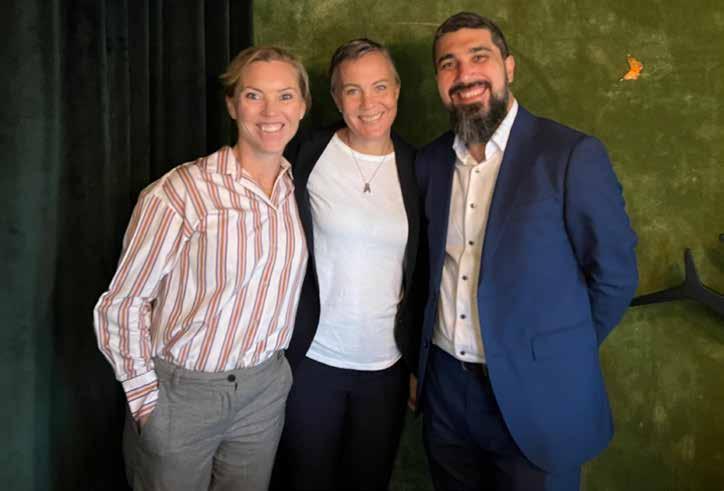
to the years with Covid-19, while there are immense opportunities.
“That’s why we’re investing in that area now, and of course it’s both about getting the opportunity for Swedish companies to sell their expertise and their solutions and products, but it is also about a purpose from Business Sweden that we have this approach around the world; that sustainability is now part of our purpose – being one of the reasons why we exist. There are opportunities above all to collaborate and hopefully help to influence development in the right direction, but of course also for Swedish companies to have the opportunity to be the driving force in that matter.”
Other opportunities also connect to Malaysia’s worldleading implementation of 5G. “This can attract more Swedish digital companies, using Malaysia as a test bed. And Ericsson themselves are doing fantastic work there as well. I think the 5G implementation can open up vast opportunities for Swedish companies,” states the trade commissioner.
The survey highlights this concerning “Swedish companies with a unique value offering, good partner relationships, and a local presence”.
“Whether it’s about green transition, digital solutions or about the health sector - which is often also digital – it’s clear that there is a desire for Swedish innova-
tion in a market like Malaysia, which has a growing middle class and a high GDP per capita compared to many of the neighbouring countries, so there is great potential, of course for B2B companies, but I also think on the consumer side, where IKEA and H&M are existing examples.”
“I would like to see more innovative new Swedish start-ups here. I think that Malaysia deserves to be better known in Sweden. I hope to contribute to that as much as I can as well.”
As facilitation BS offers business incubators operations: “This is a service where we help Swedish companies with a very hands-on approach, such as starting a company, helping with employment and personnel also on an ongoing basis, finance and controlling, and to get started. So it’s an incredibly good option for those who want to enter the market quickly. We create a lot of value by enabling such a hit-the-ground-running service.”
The result of the survey is one of the tools used in promoting Malaysia’s opportunities to Swedish stakeholders.
“We reach out to Swedish companies in different ways. They contact us and we also reach out - if we identify that there are opportunities within a certain sector or branch, we make certain efforts to reach out to related companies and tell them about the chances in Malaysia. It can also be in the form of webinars,” ends Emma.
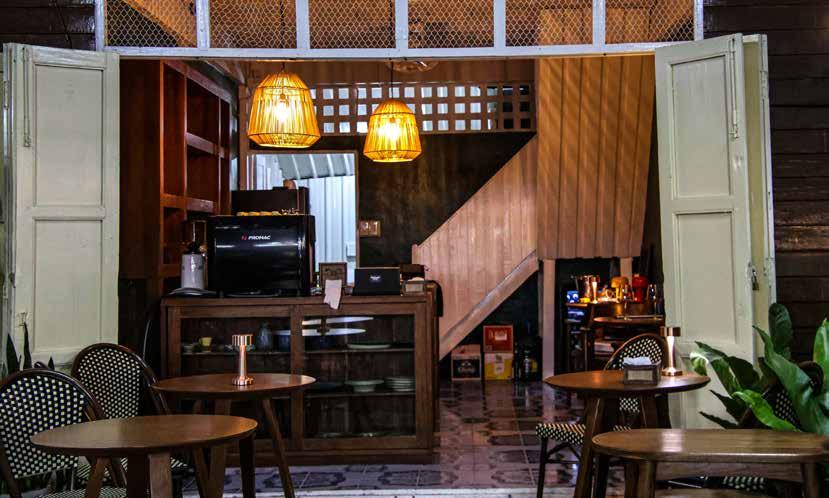
A new wine bar, Ming Muang Eatery and Wine Bar, opened on the 6 March In the Somphet Ming Muang Market in Chiang Mai. The owners are Danish Søren Barnak and his wife Phatpreeya Napapiromchot.
By Lærke KobberupAs I make my way among the booths in the Somphey Ming Muang Market I spot Søren Barnak. He is busy supervising the construction workers, making sure that everything is perfect. When he sees me, he quickly cleares a small seating space for us among the construction materials.
Søren Barnak is 54 years old and has a degree in sociology from Roskilde university in Denmark, but has been working in the golf industry for years. Now he is investing in a small wine bar in Chiang Mai.
“We plan to open next week, but it is difficult to make sure everything is done right. The language barrier really can be difficult in these situations,” he explains as he describes the difference between the three headed and two headed electrical sockets.
Even though the language barrier creates issues it is clear that Søren is not new to Thai culture. However
there was a time when Thailand was more a vacation location than a home.
Years ago when Søren Barnak got divorced, he had a choice to make. He always loved to travel, but was it too late? Should he just buy a house and settle down in Denmark?
“I figured, I could buy a house and settle down in Denmark later on, if it was still on my mind,” he explains.
Luckily he had the option of working remotely which gave him the opportunity to travel all around Asia.
And lucky that he did because on a market in Chiang Mai five years ago he met his new wife Phatpreeya Napapiromchot, nicknamed Phat.
“I saw her smile, and I was sold,” Søren says while looking at Phat.
She is getting instructed on how to use the new coffee machine that just got delivered a few meters from us.
Søren and Phat got married this October, and have been trying to figure out an endeavor together ever since.
Initially they wanted to open a restaurant, Søren explains, but they weren’t sure how exactly to make it happen.
While searching for a space for their restaurant, Søren and Phat were drinking wine, they realized that there
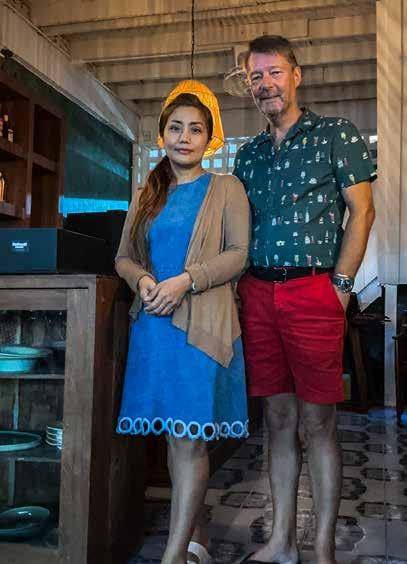
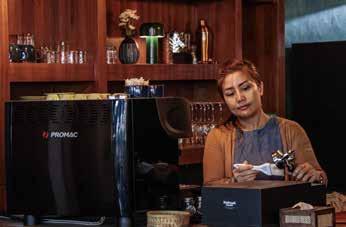
I am the kind of person who believes that anything is possible
really weren’t that many wine places in the Old Town of Chiang Mai.
“It just seemed like a better idea. Then we didn’t need that big a kitchen or the long hours cooking,” Søren Barnak says.
Also, Søren explains they expect the wine bar to attract some of the faculty from the university in the city.
Of course Søren is excited to see how it is going to go. Will people come and buy? but he follows his concern with a characteristic about himself:
“I am the kind of person who believes that anything is possible”
The winery is something for Søren and Phat to do together. However, due to labor laws in Thailand, Søren can’t actively be involved in the running of the establishment.
“Officially, Phat will own and handle the daily running of the place,” he explains.
That however doesn’t diminish the pride and joy in Sørens eyes when he shows me around explaining the plans for the interior design.
The design is a mixture of Thai and Scandinavian design. With the new wooden furniture and the original floor tiles.
Søren is going home to Denmark in a couple of months, but ideally the dream is that at some point he won’t have to leave Chiang Mai and the life he is slowly creating for himself here.
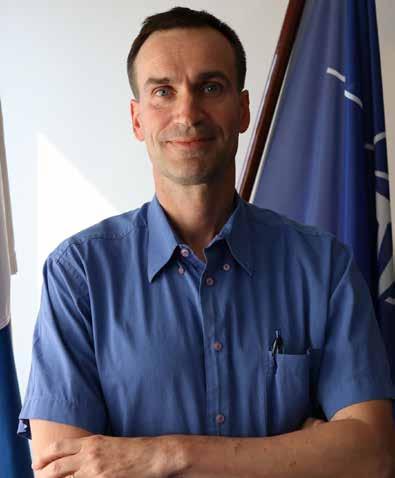
Kaihilahti, shares a multifaceted insight into Finland’s role in Indonesia and the country’s new capital project. This comprehensive discussion explores the complexities of international cooperation for a greener future.
By Miabell Mallikka SmedegaardReflecting on his role, Ambassador Kaihilahti traces his affinity for the region, fueled by academic pursuits and language skills.
“I’ve done a lot of work with Asia over my career,” he notes. Revealing his proficiency of the Chinese language and a master’s thesis focused on Asian cooperation.
The Ambassador’s long-standing interest in Southeast Asia finds its roots in early exposure to events like the Vietnam War. Adding a personal dimension to his diplomatic journey.
Kaihilahti shares his enduring passion for Southeast Asia, expressing a long-time desire for a posting in Indonesia. His observations on Indonesian culture highlight its syncretic nature – absorbing influences from various religions.
“The way they have absorbed influences from all the other religions is very interesting,” he reflects.
One of his latest tasks as the Finnish Ambassador to Indonesia, has been to further Finnish business interests involving the construction of a new Indonesian capital.
Ambassador Kaihilahti underscores Finland’s active participation in Indonesia’s new capital project. Positioning the country as a specialized partner committed to sharing expertise on sustainability.
“We’ve been recognized as a knowledge partner, sharing our experiences and best practices to facilitate their goals related to sustainability and green aspects of the city,” Kaihilaht affirms.
The emphasis is on decentralizing Indonesia’s economic gravity away from Jakarta, aligns with Finland’s commitment to sustainability.
The Nordic focus on sustainability reflects the Ambassadors work in Southeast Asia. Discussing the challenges of balancing sustainability goals with economic considerations in a developing country as Indonesia – acknowledging the need for cost-effective solutions.
“We all prioritize the green transition as one of our key sectors. It presents a twofold challenge to us, impacting everyone involved in renewables,” the Ambassador explains – highlighting a shared Nordic goal.
Kaihilahti not only credits a shared Nordic vision for the more sustainable solutions in the region. He also
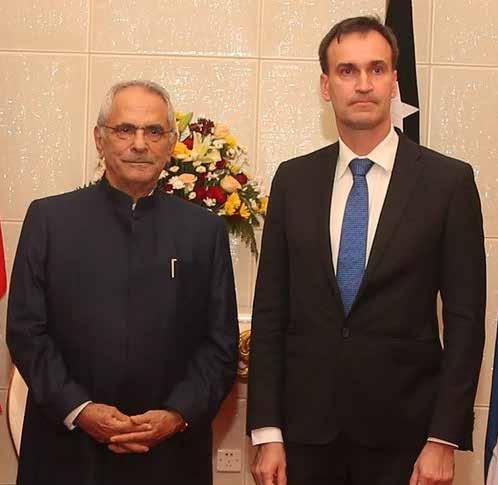
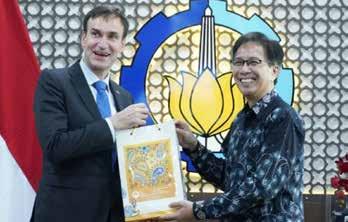
acknowledges the role of his predecessors who founded the groundwork.
“If something positive takes place during my tenure here, the seeds have most likely been sown by my predecessors,” the Ambassador says with a sympathetic humility.
The Ambassador further emphasizes the significance of state-of-the-art products. Highlighting Finland’s dedication to advancing technology while ensuring ecological sustainability.
“We possess cutting-edge products and solutions, technologically speaking,” the Ambassador shares with pride in his voice. He then mentions different Finnish projects – among them technology aimed at reducing energy waste.
“One of many sustainable projects we’ve been trying to pioneer here is smart grids,” he shares.
In Finland, smart grids play an essential role in advancing the efficiency and sustainability of electricity distribution. The goal is to integrate renewable energy sources, optimize energy usage, and contribute to global
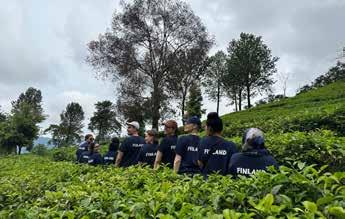
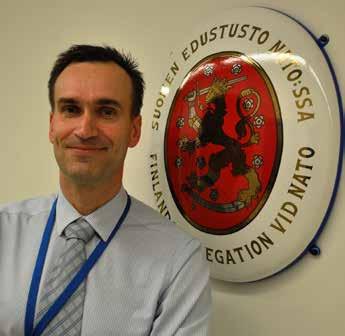
grid modernization initiatives – like the Ambassador strives to do in Indonesia.
Despite the cooperative spirit among the Nordic embassies, all located in the same office building in Jakarta, Kaihilahti acknowledges the competition among the nations as well. Especially among the Nordic companies.
“Often, companies find themselves competing with one another. Not only on a national level but also as rivals within the same industry,” he notes.
However, he underscores the presence of Nordic collaboration, along with the importance of European Union membership in facilitating joint efforts in trade relations and negotiations with Indonesia. This along with a shared community among the Nordic nations in the form of NordCham, Indonesia.
Overall, the interview with Ambassador Kaihilahti underscores the importance of international collaboration for shaping the future of nations and fostering a sustainable path – and hopefully a greener new capital in Indonesia. Build with the help of Finland, and the Nordic country’s sustainable solutions.
It started as nothing and suddenly it was everything. The real estate company Amazing Properties has the knowledge of being local as well as the experience of being new to Thailand.By Lærke Kobberup
‘‘It all started with a short holiday to Thailand, where I fell in love with the country, its people, hospitality, and the weather”
It was the beginning of 2009, and Gerwin van de Velde wandered the streets of Bangkok looking for clients as a stranger. Not knowing anyone. Nothing but business cards and a map in his hand. Hoping that Bangkok could be his new home.
Gerwin van de Velde had just arrived as a certified real estate agent from the Netherlands and was trying to set up his Real Estate Business “Amazing Properties” in Bangkok.
Dividing his time between searching on Craigslist for potential renters and giving his name cards to every real estate owner he met. He saw the potential to turn this into something big.

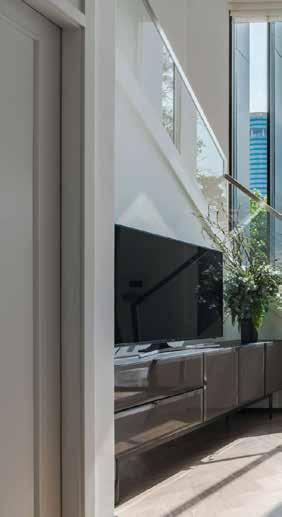
“It was very tough in the beginning. I didn’t know how it would go, so I kept my house in the Netherlands just in case. But, I had to try”.
”I wanted to stand out. Make sure that people remembered me, so I made gold-colored name cards with a scent” Mr. Gerwin says.
Today the business has been thriving in Bangkok for 15 years. Making sure people remember the company is still very important to Mr. Gerwin who now mainly handles the marketing side.
“Nowadays, the real estate industry in Bangkok has become highly competitive, with a growing influx of real estate agents joining the market on a daily basis,” Mr. Gerwin explains.
“Amazing Properties” have been present for a long time in the Bangkok real estate market. They pride themselves on their reputation being established through trust and loyalty from their customers, who continuously refer new clients to them.
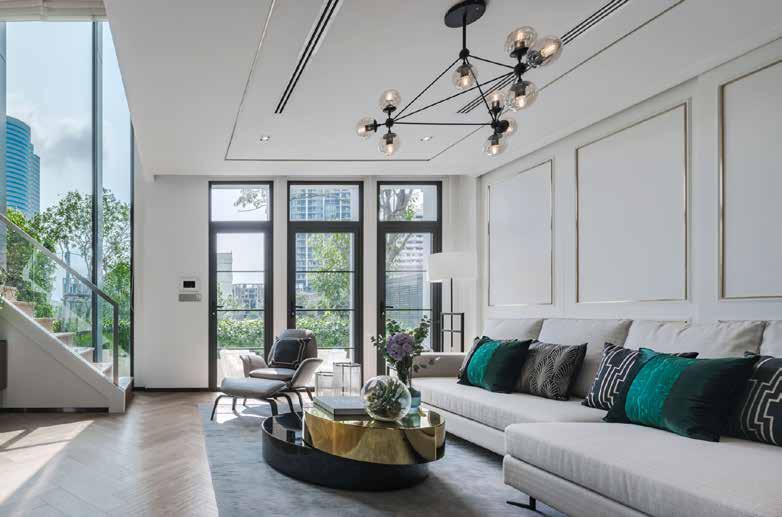
“Our aim is always to secure the best deals for our clients. This upholds the value of honesty, ensuring that our clients are fully informed about any pertinent information, even if it may pose challenges in closing the sale.”
In the beginning, Amazing Properties gladly accepted all kinds of properties that were brought to them. Today they are more selective on the properties they list, as they are primarily focused on the Sukhumvit & Sathorn areas.
One of their main passions is finding exactly what the client needs. They specialize in pet-friendly apartments, family-friendly apartments and commercial properties. They also offer the option of finding an apartment with specific features such as a private pool or garden.
Their customer base comprises multinational corporations, embassies, expat families, as well as local Thai individuals, many of whom are proud pet owners.
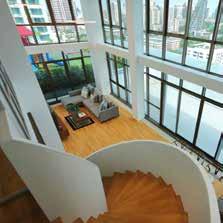
Link to portfolio:
https://amazingproperties.org/portfolio
Mr. Gerwin consistently enhances the website with new features, making it effortless for renters and buyers to discover their ideal property.
“Everyone has different requirements and therefore we have implemented a refined search with a filter function to find your ideal home with ease”
From detailed floor plans to immersive 3D walkthroughs and captivating fly-through videos, they
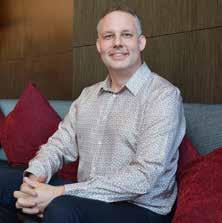
offer many tools to help customers envision their ideal living space. You also have the option to measure walls, making it easier for customers to plan and decorate their apartments with their furniture pieces. Today, Mr. Gerwin van de Velde is no longer a stranger in this vibrant city. With his outstanding reputation at Amazing Properties, he has truly found his place. The Netherlands seems like a distant memory now, as he can’t imagine going back.
Read more in link:
https://amazingproperties.org/
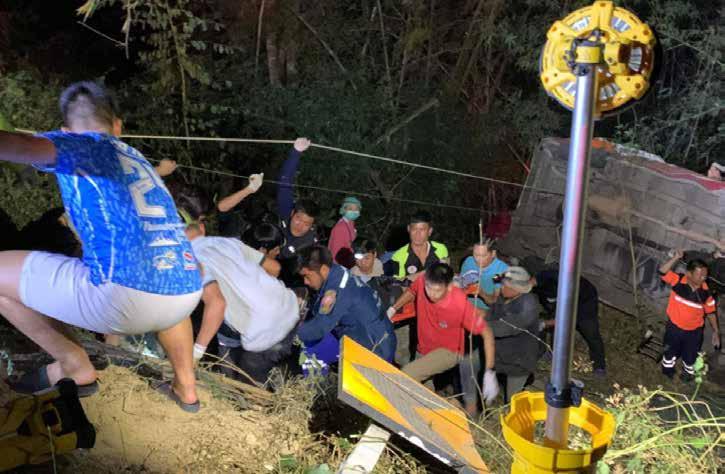
Thirteen Danish citizens were involved in a serious bus accident in the Mae Hong Song province in northern Thailand Thursday night 8 February 2024.
The 50-year old Thai bus driver, Baramee Panyajachaiya, was killed and three of the Danish passengers were seriously injured in the accident. The involved have been brought to the hospital. The Danish citizens are allegedly between 19 and 25 years old.
The driver lost control of the vehicle in a curve, and the van fell 15 meters down into a ravine, rolling over five times before it came to rest against some bamboo. The group was on their way to a Full Moon Party in Pai.
The Danish Embassy in Bangkok was alerted to the situation and rushed to provide consular assistance.
A week later, four of the thirteen young Danes, who were injured in the bus accident, were ready to fly home by commercial flight.
According to Sune Vibits, Country Manager for Denmark of Falck Global Assistance, the young Danes are still mentally affected by the accident and therefore they will not fly home by themselves. Par-

ents of some of the injured flew to Chiang Mai earlier this week, and will now fly back home with them. Initially it was announced that some of the Danes were seriously injured and some were even in critical condition. But now all of the patients are in stable condition and it is expected that the remaining nine Danes will also be able to fly home within the next couple days. It is uncertain whether they will fly by commercial flights or air medical services.
The night market in Chiang Mai was bustling as Maja Delić and Emil Kidmose made their way through the array of food stalls. The smell of spices, fish and smoke from the grill filled the air. When Maja checked her mobile phone she realized that her mother had called and texted her a couple of times. She finally called back 40 minutes after her mom’s first call and heard the relief in her mother’s voice, answering from the other end of the world.
The news had just made headlines in Maja and Emil’s home country Denmark: a minibus driving from Chiang Mai to the popular tourist destination Pai fell down a ravine, leaving the 13 young Danish passengers hospitalized and the Thai driver dead on 8 February 2024.
Maja’s father told her he couldn’t work as he was sick of worry. Her not picking up had her family thinking the worst had happened – that their daughter had been a passenger in the crashed bus.
The two Danish friends, 20-year-old Emil Kidmose from Brøndby and 20-year-old Maja Delić from Frederiksberg, have now changed their travel plans to avoid the route between Chiang Mai and Pai.
“We asked ourselves, is it worth it?” Maja Delić said.
According to the Mae Hong Son Tourist Police, which was initially the responsible police department for the case, the curve where the bus crashed is known as the “death curve” by locals. Thailand has one of the highest number of annual traffic accidents, killing around 20,000 individuals on the roads and injuring a million in 2023.
Maja and Emil could easily have been on that particular bus from Chiang Mai to Pai.This specific path through Northern Thailand is a typical trip for backpackers and other young travelers coming to Southeast Asia for the white beaches, vibrant night markets and adventure. Many tourists take the route from Chiang Mai to Pai to Chiang Rai and then take a boat to Laos. The two Danes were supposed to meet in Thailand on 3 February 2024, but they got delayed three days, meaning Emil and Maja could have been on the crashed bus, if everything had gone to plan.
Maja had been warned by other tourists about the route and many had called it both chaotic and scary. They
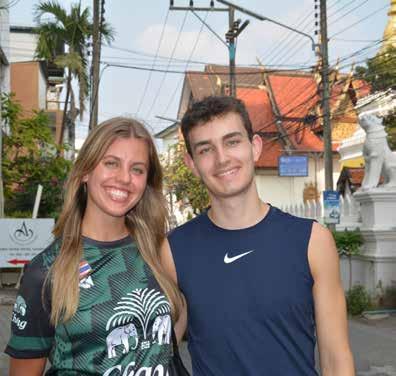
advised her to split a taxi to climb the slopey mountain side. The same can be seen in the Hostelworld app, where backpackers ask if others going to the same destination are willing to take a car together in order to avoid the notorious mini busses.
Emil had traveled with some Danish girls in Indonesia, and they went to Chiang Mai before him and were in Pai when it happened. Emil was worried about them and texted them, but luckily nothing had happened. Emil and Maja both agree it hits closer to home, when it is fellow countrymen that are involved in accidents like this. Especially because it worried their families.
Both young Danes say they are not considering going home after hearing about the accident. Emil’s parents said he shouldn’t let this affect his and Maja’s trip. Maja’s father was a bit more hesitant and told her multiple times to be cautious. But nothing can deter the two young adventurers from finishing their trip, which for both of them will last around three more months.
“Full speed ahead”, Emil said and laughed.
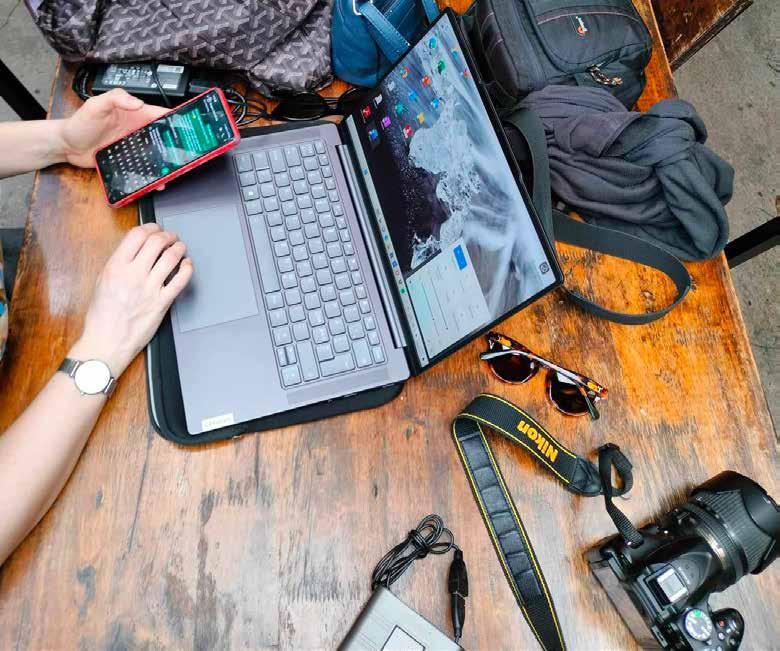
After only one week on the job, ScandAsia assigned its two new interns to report from the accident in Chiang Mai.
By Charlotte Nike Albrechtsen and Lærke KobberupAbus accident in Chiang Mai on 8 February sent 13 young Danish citizens to the hospital. They had been traveling from Chiang Mai to Pai.
When our boss asked us if we wanted to go to cover the accident, we eagerly agreed to go, fueled by our desire to learn and create journalism. Not thinking of the fact that we had only just finished our first official week of working at ScandAsia, and that this was a very serious and emotional event to cover for someone, who isn’t that experienced.
However our curiosity and perhaps naivety conquered, and we caught the last night bus to Chiang Mai. No reclining seats, but a heavy amount of air conditioning
set the tone for our 11 hour long drive.
Before we even arrived certain questions started to appear. We had been contacted by a Danish media corporation, and they had said that they would cover our expenses, if we could provide them with some content. What was actually our plan? Should we just go to the hospital and hope to bump into someone?
We arrived at 9 in the morning, and quickly checked our bags at a hostel close to the hospital where the Danes were hospitalized. We had reached out to the young people involved in the accident on social media, but we didn’t want to pressure them too much.
They had just experienced something traumatic. Some of them were seriously injured, others had carried their friends out from the crashed bus, while realizing the driver had died. How do you get a statement from the victims, like a good journalist would, and at the same time not overstep any ethical boundaries and remain empathetic to their situation?
Being at the hospital didn’t get us very far in getting an interview with the injured as we were politely nudged to leave in proper Thai manner and later again by the representatives from the Danish Embassy in a more direct way.
We weren’t getting anywhere. Frustrated and sleep deprived we tried to think outside the box. How could we contribute? What did we have access to that the Danish media didn’t? And suddenly it hit us.
When you stay at a hostel, as we did, you can automatically join chat groups for other travelers staying in the same area as you. This is usually used to find people to party with or maybe to split a cab. Regardless, we decided to throw a message in the chat about the accident. Maybe there were some Danes who wanted to talk about the accident with us.
This resulted in a video interview with two young Danish travelers, who decided against going to Pai after hearing about the accident. Exhaustedly we sent the content home. Happy that we had something to show for on our first day in Chiang Mai.
We tried many different approaches in Chiang Mai. Sitting outside the hospital for hours, finding other backpackers, driving to the local tourist police station, only to be
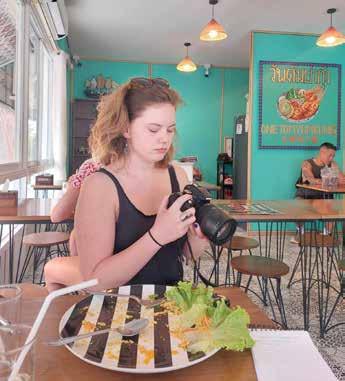
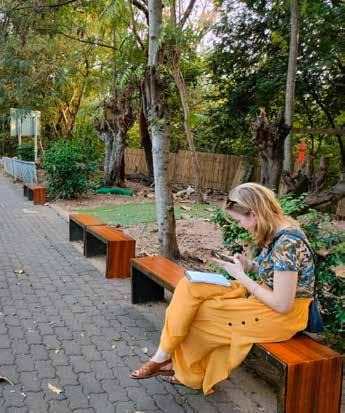
sent back by the complexity of Thai bureaucracy. It was explained to us that we first needed to talk to public relations at city hall to get permission to talk to the local police station and that we needed to bring a piece of paper proving our legitimacy as journalists and actually it would be better to send an email and wait. We even spent a morning at Chiang Mai City Hall, but no progress was made.
We went to the Chiang Mai bus station, where the minivan had left for Pai, to talk to the colleagues of the deceased Thai driver. We tried talking to the workers with our best google translate capabilities. When we asked about the working hours a supervisor came over saying to call the company’s main phone number. But no one answered the call.
We realized being a journalist is different in Thailand. Language barriers kept us away from the local stories and bureaucratic hurdles blocked us from getting official statements.
“We haven’t officially been working as journalists for more than a week”, we kept telling ourselves.
We went to Chiang Mai to experience the authentic experience of being in the field as a journalist in a situation of crisis, and we certainly got it. However, we were grateful to be together and not alone, as it made reflection more natural.
It was a difficult and educational experience. It felt as if we worked non stop the three days we spent in Chiang Mai, and in the end we had very little to show for it. But hey! We are new in the game, and we learned a lot. Next time we get thrown into a new situation we will be more prepared. And at least we learned that we have the will to create.

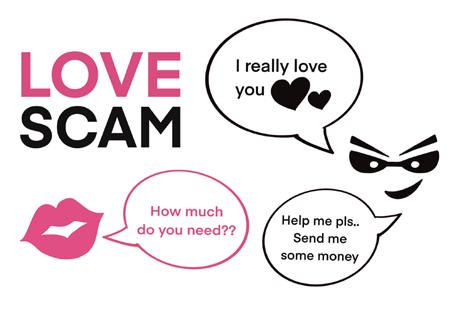

Ihave been a Facebook member for years and I have always enjoyed it and still do. It has brought me long lost friends back, it has reminded me about birthdays and sometimes, published postings have made me crazy.
For me, it’s very important only to publish what I can stand up for and I think I have been doing it from the beginning.
I enjoy making my comments on some postings, and I have plenty of times got into a bit of heavy arguing with people I don’t know, when they have found me totally wrong in my opinions. I like that and I don’t mind when they try to prove me wrong, sometimes with very rude comments.
I, and many women with me, receive friend requests daily from men telling me they want so much to become my friend, but unfortunately their friend request doesn’t come through. “Can you please add me as your friend?”
Normally these men claim to be surgeons, working for the UN, or engineers working on an oil rig at sea, or highly ranked military officers posted in Yemen, Afghanistan, Syria or Somalia.
Most of them pretend to be a widower, their beloved wives have died of cancer, in car crashes or just disappeared. Many of them have a child or even several children.
The men normally look very handsome and masculine on their profile photos and they can’t wait to find a kind, loyal, supporting wife and stepmother to their much beloved children, who are mostly in boarding schools or alone with only a nanny.
Sometimes you notice how they let Google do the translating into English and when you point it out, the most common answer is; “But honey, I’m texting so fast, so it’s natural to make mistakes.”
You can only laugh.
I have made it a bit of a game to text back these men, and it’s so interesting to see how they proceed and how they are trying to convince you that they just adore you and can’t wait for their contracts to end so they can come to meet with you.
I have had men sending me photos of the most elegant apartments or villas, asking me “Honey, do you like my furniture and decorations?” or “When we move together, you can of course, change it to your taste if yours is different from mine.”
I must say, some of them have a great taste when they search for the right images. Once, I was texting for months with an engineer, who was working for many years on an oil rig. He told me at an early stage that he has a wonderful daughter, studying robotics in Hong Kong and that she, who had never heard about me, would love for me to become her stepmom. Of course, here you have to smile.
In a way, I admire how they put their stories together. It needs lots of fantasy.
Sometimes it takes months before the question comes; “Honey, as you know, I’m in the middle of the sea and I have trouble transferring money from here. Could you please help me out? I will, as soon as I come to see you honey, pay you back with interest.”
The most common request I have received is to help pay the fee for the boarding school. I’m often wondering how many other women they have sent these re-

quests to after a while of texting? I can imagine, if you are a single, middle aged woman, that you might enjoy feeling admired and wanted and I do think that many women do send money, at least once.
When you are asking the “surgeons” why, if they are so good doctors as they often say, they don’t have a job in a regular medical clinic or hospital?
The most common answer is; “But honey, you must understand how much we doctors can do for people in e.g., Yemen or Afghanistan. Here we feel really needed and we do such an important job here.”
Normally I then ask them back: “But in your high position and being so needed, I assume you must have quite a good salary. I am sure you have your own computer or laptop - it must be easy for you to do internet banking?”
Long silence…..
“Honey, it is very expensive having my child in boarding school, you must understand that and if you love me as much as I love you, please help me out.”
My next question, how on earth can you say you love me, you have never seen me, just been texting for a short time?
“Oh honey, I feel that you are through your writing a wonderful woman with a huge heart and I do trust you and also trust you will help me out.”
Here I normally block the person.
Several times, they then try to find you on other platforms.
Many of these scammers, especially the men pretending to be surgeons, get offended and insulted when you
point out that they have to look for themselves and that they should be ashamed of asking a woman for money.
It is quite interesting to see how long it takes before they start to beg for at least just a small money contribution. Sometimes they have a lot of patience and it can go months before they ask you for help and you see it in their writing, when they get close to ask the question. It is then, it’s time to block them.
I think it’s not so common that female scammers pretend to be in big need of money from a male victim, but I don’t know. Anyway, it’s rare that you see a woman texting a man in a normal posting on Facebook, that she has tried to connect with him, but failed.
When someone writes that they have tried hard to become your friend, but you have not received a normal friend request, then you can be sure, it’s a scammer.
On the What’sApp platform you can see the country code from which country the message is sent, and believe me, it is mostly a Nigerian number and you know you might as well block the person immediately if you don’t feel like playing with them.
Now people might say; “How can you be such a racist, there are good people in Nigeria too”. Sure, but those good Nigerians don’t send you these kinds of messages and eventually end up asking you for money.
To me it has become a play and a game, but you must be alert and play your cards cautiously. Never reveal actual information that they could use to contact your family or friends and pretend they are a friend of yours.
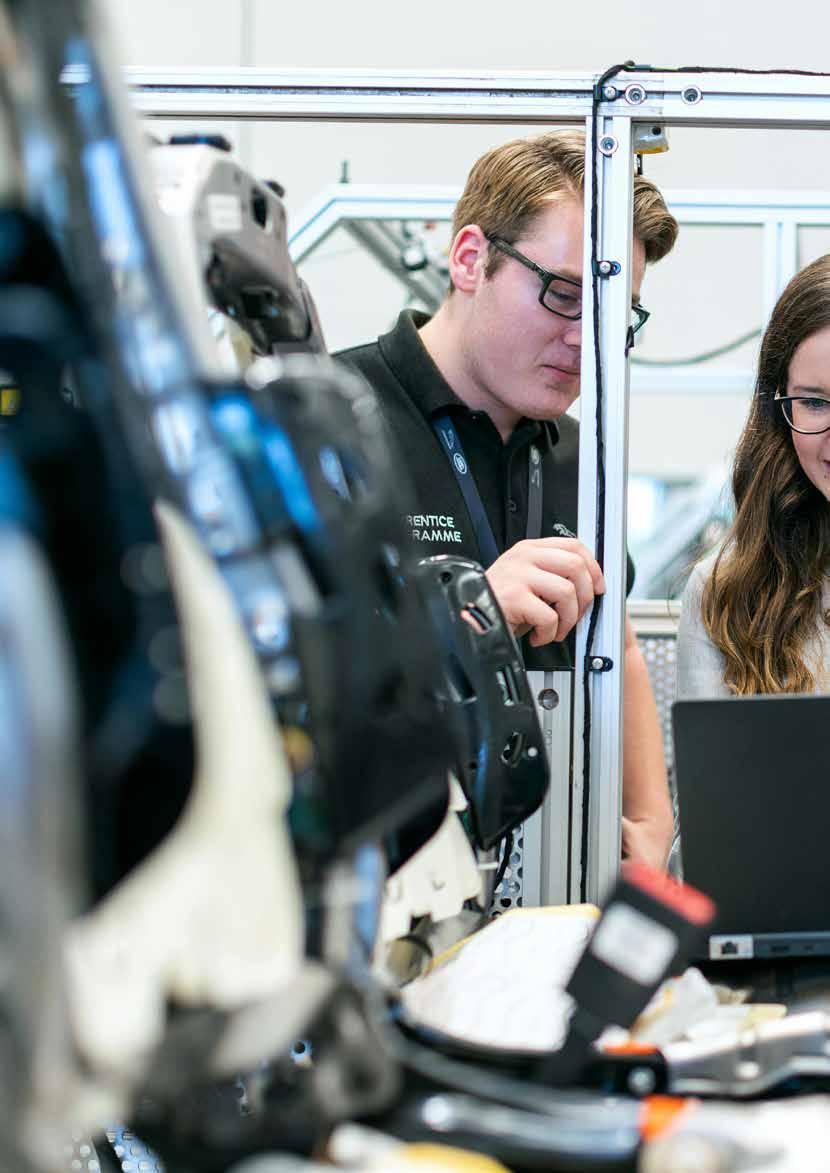
- Streamlines processes and industry 4.0 adoption; enables green manufacturing, efficiency, and production improvements
Virtual Manufacturing (VM) in Thailand is now an established Swedish-Thai lean consultant facilitating and spearheading Smart Manufacturing. Multinationals should pay attention that we nowadays also serve clients overseas, enabling full service to manufacturers with multiple sites and focused on scalability!
“Our expansion to serve multinationals overseas, particularly from the Nordic region, is a strategic move. It reflects our commitment to bring VM’s unique blend of innovation, efficiency, and sustainability to a global stage, recognising the intricate dynamics of global operations,” says MD Mr. Pontus Rosengren.
Our qualification criteria are usually manual or discreet assembly manufacturers (or those with hybrid production having lots of changeover needs) and focused on the high mix and low volume. Often, clients also look for replacements for paperwork or a legacy MES system.
Our clients typically face complex challenges – managing diverse teams, navigating local regulations, or ensuring consistency across borders. VM’s in-depth understanding of local cultures enables us to tailor solutions that resonate while meeting global standards of excellence. The blend uniquely positions us to turn these challenges into opportunities, driving efficiency and innovation at every level. Our team in Thailand includes individuals from various nationalities, each bringing different languages to the table. This diversity makes it smooth for us to connect and work with multicultural businesses.

Among our services, we have a ‘visual component’ – an advanced simulation platform pivotal in designing and optimising production processes even before physically implementing those. This tool will save time, significantly reduce risk, and foster innovation. You’ll be able to foresee changes and what they look like. And you can even entirely and realistically simulate it.
Today, many automation investments and initiatives need help carrying out the digital delivery first or testing and stress testing things in the virtual world first. So that’s our recommended approach before you make investments and changes in your factory. And the same applies if you wish to test a new approach in manufacturing. You also need to foresee the inevitable problems that will eventually occur in any factory!
Tulip in the toolbox
Furthermore, we’ve expanded our expertise to include frontline operation platform development , reflecting our commitment to streamline production processes and empower operational decisionmaking with advanced digital tools. It’s where strategies meet reality.
Tulip is such a platform complementing our services, and that helps manufacturers boost productivity, cut defects, and gain improvement insights. “These are testaments to the transformative power of intelligent, integrated manufacturing solutions. It’s about achieving more with less – less waste, less downtime, and less uncertainty,” says Pontus.
Tulip has built a low/no-code platform that we can fit in with any current MES and gap fill where you’re not strong enough – and solve individual station problems. So, when observing manufacturing with lean eyes, we often record
on video and gather data. Then, by analysing, we can solve any issue, for example, by digitalising it. Instead of spending months or years building software or an application, we can do it within days or weeks, so it’s swift to solve a problem or come up with something you can test. We can also build bespoke digital solutions for any specific workstation that fits in with the rest of the system they manufacture and can solve any ergonomic issue.
With Tulip, we can, for example, also connect to a testing station to verify the product’s quality and document this information. We can combine everything into one platform.
“But the main point is that you need to be able to understand and translate data so that you can earn money from it later on because data mining will become one of the main key aspects of earning money,” adds Pontus.
By providing frontline teams with real-time data, intuitive tools, and decision-making autonomy, we’re not just optimising a process but energising a workforce.
“In Industry 4.0, many different initiatives come together and still need to be able to connect, talk to, and understand each other. Eventually, it comes down to what value one can recreate from using the technologies – and not only that, because with Industry 4.0, many
smaller initiatives will lead you to a great benefit, compared to getting a huge advantage from installing a robot, for instance. We must ensure democratisation amongst those who can solve problems - to let and help people on the shop floor solve their problems with digital tools. They can do that through Tulip, for example, and are also able to connect and understand all this data gathered from devices.”
“Our collaboration with Tulip underscores our belief that digital solutions should complement, not complicate, your existing operations. This approach signifies a shift from a one-size-fits-all solution to a more nuanced, customisable strategy, ensuring that technology serves the business, not vice versa,” he concludes.
VM isn’t just about keeping pace with industry changes; it’s about setting the pace and being committed to excellence. We have designed our services to catapult manufacturers into the era of Industry 4.0, where automation, data, and human ingenuity

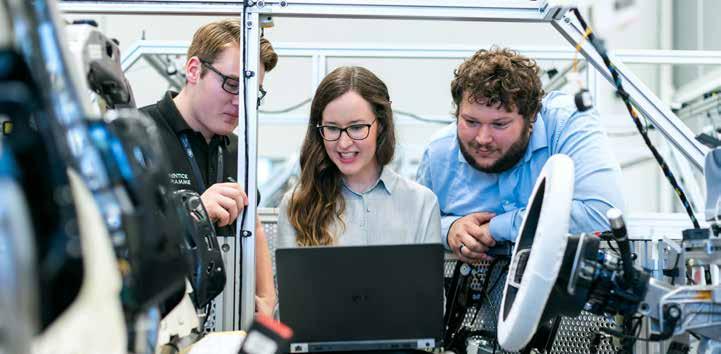
converge to create manufacturing that’s not just faster or cheaper but smarter and more sustainable – the factory of the future.
“This involves everything from increasing efficiency and reducing waste to harnessing data, and we do not limit our target by size but by ambition – the ambition to evolve, innovate, and lead. We’re talking about a holistic enhancement of manufacturing processes,” explains Pontus. “It’s about embracing new technologies, from collaborative robots to AI-driven analytics, and ensuring that our workforce isn’t just keeping up but leading the charge. This leap isn’t just technological; it’s cultural, requiring a mindset that values continuous learning, adaptability, and innovation.
AI savings, green manufacturing initiatives, and sustainability are all interlinked, so if you can save money while at the same time making your manufacturing greener – then that’s hugely beneficial.
“The more value activities you fit into your total disposable time, the better the probability of the company will be, and the more sustainable you’ll also be. All wasted time also means wasting resources. So from a sustainability perspective, it’s also about wanting to do right from the start and ensuring that we do right all the way through.”
“The environmental footprint of manufacturing is undeniable. Our commitment to green manufacturing isn’t just about compliance but leadership. By integrating cleaner production principles, green supply chain management, and circular economy, we’re changing how we produce things and transforming what it means to make them.”
Aiming for a paperless operation is a vital part of our sustainable initiatives. Additionally, we now offer services to analyse energy usage and suggest enhancements, furthering our commitment to sustainability.
VM is also on top of things when it comes to manufacturing vulnerabilities, of which there have been significant crises in recent years. We gear our solutions towards resilience through more intelligent supply chain management, localised production strategies, or advanced forecasting models. Our approach isn’t just about mitigating risks; it’s about turning challenges into opportunities for innovation and growth.
“We are seeing a huge trend towards being able to take care of our markets, adopting the ‘China plus one’ strategy, for example. We’re producing in more small sites around the world – which means
we need to make sure that we can produce based on a high mix/low volume instead of the opposite that used to be the case. We can only accomplish this by ensuring we are good at preparing for orders using digital methods. And within this, we’re seeing many companies struggling, and one of the main issues is the thinking that paper and time are free, and we don’t consider that our employees should only spend time on adding value.”
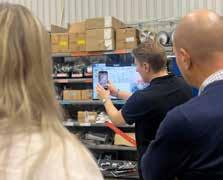
Has this made you curious? Reach out, and then we can set up the call and see how we can help with your different needs!
https://en.virtual.se/ +66 63 464 0724
vm_thailand@virtual.se
Pontus Rosengren, pontus.rosengren@virtual.se
Juthamas Apornwichanop, juthamas. ap@virtual.se
ASwedish sustainable agriculture startup by the name Our Ecolution will open its very first factory in Indonesia 1 July 2024. The startup turns agricultural waste from rice and wheat crops into building boards. The production is an alternative to field burning, where the waste of crops is being burned, emitting smoke and harming the quality of air.
Indonesia is the fourth largest producer of rice in the world, which is why Our Ecolution has chosen this as their first location. It also fits well with the Indonesian government’s plan to build more sustainable and affordable housing. The boards produced by the startup will be used for a social housing project.
In line with the companies focus on sustainability the factory will be placed close to the products buyers and suppliers. The goal is that
the straw will be sourced within 20 kilometers of the Indonesian factory, combining the country’s need for building materials and large amounts of excess wheat and rice straw. Furthermore, the Indonesian farmers will earn more money from their harvest as the residual produce will be sold as well.
The boards can be used as drywall, exterior walls, ceilings, doors and subfloors. According to the startup 10,000 tons of straws can be produced into 360,000 square meters of boards and save 24,000 tons of CO2 emissions by repurposing the material. According to plan a second factory will open in Uruguay later this year.
Source: https://www.probuilder.com/ utopia/dont-burn-straw-build-it https://www.ourecolution.com/oseproduction


A warning to all “farang” men, keep your zip closed and your credit card in your own safe.
Meet the Norwegian man Steinar Naglestad, a savior in real life. And meet Stig, whom he picked up and set on a better course in life.
By Agneta de BekassySteinar was born in Norway, not far from Kristiansand in the south of Norway.
For many years, Steinar was an officer in the Norwegian military and posted on the border to Russia. After the military years, he moved on to the capital Oslo. Here he became part of the “SWAT team” a special, highly trained police force.
After five years with the police, he got headhunted by an insurance company and saw their offers as a new challenge. Here he worked for five years and then moved on to a completely other world.
Steinar bought an old farm and converted it into a children’s home. Here he had a school built and he was an active working and dedicated owner and leader. He ran the children’s home for 15 years, but then he was exhausted and sold it.
He was completely depleted of energy and just had the wish to escape.
He decided to jump on a plane to Brazil. In Rio de Janeiro he invested in apartments that he rented out, but he was well aware of the big violence that was around him and as he never has been a drinker or fighter, he did not find himself in the right country.
As Steinar hated the winters, he began to look for another warm country and his eyes fell on Thailand, the Land of Smiles. We are talking year 2010.
In the beginning, Steinar traveled between Thailand and Norway. He says that he feels very well in Thailand, he is a kind of clean-living person, not drinking any alcohol,
but spends lots of time with training. You can easily see that from his physical appearance, he’s slim, tall and well trained.
One day, when Steinar was sitting at a coffee shop, he was joined by a Thai man. They found each other sympathetic and became good friends. This Thai man was educated in San Francisco and had a degree in economics. Despite a good education and having a rich family, one aunt living in San Francisco, he struggled with severe mental problems.
Steinar and his friend saw each other for 8 years regularly, but one day, the Thai man said to Steiner; “You will not be seeing me anymore, this is the last time.”
Steinar didn’t understand, but in 2023 he met the Thai man’s aunt who lived in San Francisco, but was visiting Bangkok and she told Steinar that his friend had jumped out from the 10th floor here in Bangkok, a suicide. Steinar was shocked and mourned his friend.
The aunt owned several properties in Bangkok and offered Steinar to reside in an apartment at a reasonable cost, which he happily accepted.
Steinar has met a lot of people in all the coffeeshops he visits. One day, he sat at a coffee shop with a Canadian friend and they saw a man that Steinar knew he had seen before who looked completely finished.
The man told Steinar and his friend that he was very drunk. He went on telling them that he had met a friendly Thai woman and he had given her his credit card and told her what amount of money she was allowed to
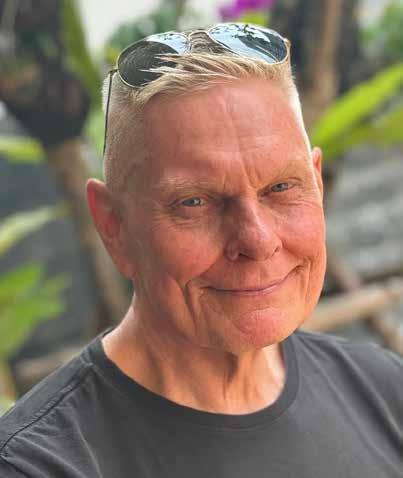
cash out. Well, the woman took the chance and emptied his card. One should be aware that Thailand doesn’t only consist of honest, smiling people that the TAT likes to tell foreigners.
This is not quite unusual. How many “farang” men have not blindly trusted the warm smiling Thai ladies and got robbed. It’s something that happens all the time, not saying it couldn’t happen anywhere else.
“Last year 2023 I arrived in Thailand and went directly to a hotel on Sukhumvit, Soi 4 Nana. I became a frequent guest at the hotel bar and got to know many people. After only a few days, the manager told me that I could stay with her. I thought the lady was nice and seemed honest, so I thought, why not?”
“A few days after my moving in with her, she said I should not carry my credit card around, but give it to her to lock in her safe. The woman gave me 5-6000 thb cash that she said came from her money. I didn’t want to accept the money, but she insisted and told me I could pay her back later.”
“I was once married to a Thai woman from Surin. So this kind woman offered to drive me to Surin, so I could visit my children’s grandparents and she paid for the whole trip.”
“I one day asked the woman if she had cashed money from my credit card, but she answered “nonsense, absolutely not”. I checked on my card and found out
It’s a blessing to find people who trust you and are willing to help.
lots of money was missing. There was money cashed on ATM machines and spent on a restaurant next to her bar. I asked her to give me my card back, but she said she couldn’t find it in the apartment anymore. But wasn’t she supposed to keep it in her safe?”
“I immediately called the bank to report her. I told her that I was going to the police and report her. She begged me not to do so, as that would give her business a lot of trouble. In all, close to 250.000 thb were gone.”
“I did call the Tourist Police, but was told to contact the Lumpini police station. I went there and filed a report. I had proof of all transactions. Finally, I could talk to an investigator who promised to help me. I speak Thai quite well and started to explain my problem to him.”
“After having spent some hours together, he and I went to the woman’s apartment. She had at that time already kicked me out. First, we had to wait outside her apartment, but after a while she appeared, talking on the phone with a Thai man and she said that the police were going to come and catch her.”
“She suddenly became very violent and attacked me. She hit me on my head with her mobile, while she was screaming loudly. She found a stick to hit me and the policeman only laughed. He took the stick away from her, but listened to her story about me that was full of lies. The policeman drove me back to my hotel and said he wouldn’t follow up on my story, he believed her.”

“After that I couldn’t cash out any money as my card was blocked. That was the time when I contacted the Norwegian embassy. I managed to have some money transferred to the embassy and they paid me cash.”
Stig’s family knew about Stig’s drinking habits and didn’t want to send him more than a 1000 thb to help him out. This is when Stig met Steinar at the coffee shop, and he asked Steinar for permission to have his pension transferred to Steinar’s account and Steinar accepted and paid Stig out monthly.
Then he met Steinar..
“One evening I sat outside my hotel where I met this Norwegian man, Steinar. He had been a police man in Norway for a long time and a member of the SWAT Team. Our meeting was a blessing for me. Here was a man who believed me and my story and who was willing to listen and even help me. He invited me for coffee and bought me food. I also transferred money to him that he cashed out and returned to me.”
“Steinar took me on long walks in the park close to my hotel. I told him my wish was to return to Norway asap and he decided to follow me to the Emirate office. There he bought me a flight ticket. It cost 15.000 Norwegian crowns, quite a big amount. He said he trusted me that I would pay him back. Soon after my arrival in Oslo/ Norway I did pay him back.”
“It’s a blessing to find and know that there are people among us who are giving you trust when you need it the most and also are willing to help. I can’t express my gratitude enough for Steinar. We have a good relationship
even today, after all that has happened. He also let me know that I, with children, do have to take responsibility and rightly so.”
“I was married to a Thai woman for 11 years and we have two wonderful children together, now 17 and 19 years old. They have lived 17 years in Norway, working and studying. Their mother and I got divorced 7 years ago.”
“I also think it’s a real miracle that when I returned to Norway my father had a stroke and happily, I was there for him and could immediately help him, as I’m familiar with First Aid after having worked several years offshore. In fact, I have been working in 43 different countries. I have never had any problems anywhere, except for here in Thailand.”
Stig says that he does not at all agree when the Tourist authority says they do everything to help tourists that have been robbed or abused in Thailand. The police department is corrupt, he explains. He mentions that the restaurant on Sukhumvit Soi 6 that the dishonest woman spent time at belongs to a policeman and the woman who took his money is still managing her bar, which is located close to that restaurant.
Stig finishes by saying that he still loves the Land of Smiles, but wants to warn foreign men for street-smart women. “I know about more men who have been robbed by the same woman, one of them a Danish man. She managed to steal 40.000 thb from and I think she has stolen a very expensive apartment from an American, but I can’t prove it. My story might help open up foreign men’s eyes.”
The Danish church in Bangkok moved on 1 March 2024 into a new community house. According to Anette Mundbjerg, the deputy chairman of the Danish Church in Bangkok, the Church Council had been looking at options for the last four months. It hasn’t been easy finding the right fit but when she stepped over the threshold to their new house, she knew they had found the right place.
“The sky’s the limit for what the Danish house in Bangkok can be used for,” says Anette Mundbjerg.
After six years of church activity, the Danish Church in Bangkok finally has a place to call home. Anette Mundbjerg and the rest of the church congregation are thrilled by this new possibility to build an even stronger community in the capital of Thailand. According to Anette Mundbjerg, churches abroad are capable of more than teaching about Christianity. The new church will be a safe space for Danes in Thailand,
where Danes can connect with other Danes, creating friendships and connections abroad.
According to Annette Mundbjerg it is not certain how much the Danish Church in Bangkok specifically will receive in funding, but that the money will go to helping the church on its feet for the next two to three years. The process of searching for a new house began when Selma Ravn, the General Secretary of the Danish Seamen’s Churches and Churches Abroad (DSUK), came to visit Bangkok on a round trip through Southeast Asia last year. Afterwards DSUK applied for funding from the Danish Church Ministry, which has since then granted the organization five million Danish crowns that will be divided amongst multiple Danish churches abroad.
Up until now the Danish Church in Bangkok has held ceremonies in the CCT in Bangkok, the Church of Christ in Thailand. Furthermore, the church has held church services at

home where some of the around 30 church goers have invited the congregation to ceremonies at their home addresses.
The Danish Church’s new home is a four-story house with an office for the priest, four rooms, a kitchen, dining room and small yard. The house is located centrally in Bangkok, in Soi Ruam Rudi only ten minutes by foot from the BTS Phloen Chit station.
https://maps.app.goo.gl/ zhetTZ3wcSykk4ri9
The Board of Directors is already planning an Easter service on 31 March 2024 and a reception on 27 April 2024. It is Anette Mundbjerg’s dream that there will be one or two activities in the house every week. The church is always interested in new volunteers who want to lend a helping hand.
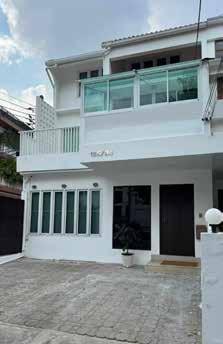

Finnish agronomists are successfully farming bamboo in freezing temperatures for two Chinese giant panda’s living in the Ahtari Zoo. After eight years of trial and error the Finnish bamboo production still only makes up a fraction of the
food supply for the giant pandas, but it also works as an emergency supply in case the import of bamboo is being hindered.
The temperatures in Finland can plummet to below 30 degrees celsius in winter months, and the
freezing temperatures are very far from the plant’s natural growing conditions.
The agricultural adviser Jari Luokkakallio has become an expert in the field and believes the pandas prefer the fresh bamboo he provides. The bamboo cultivation project was launched in 2016 and 50 farmers joined to take on the challenge. The farmers have had to adopt techniques such as using snow as a natural insulator for the plants to ensure a right amount of moisture.
The pandas came to Finland from China in 2018 and it was the first time pandas came to live in the cold climate of Northern Europe. The Finnish public loved the bamboo-eating black and white bears and they received the nicknames “Pyry” and “Lumi”, meaning heavy snowfall and snow in Finnish. Their original names are Hua Bao and Jin Baobao.
Afemale baby elephant in Copenhagen Zoo has been named Chin after the Tha Chin river in central Thailand. The elephant was born last week in the Danish zoo. The zookeepers, who take care of the young elephant, gave it the name after having carefully discussed if it was a good fit.
Copenhagen Zoo has a long tradition of keeping asian elephants, and according to the director of the zoo, Mads Bertelsen, the zoo has a special relation to Thailand, as the
Thai Royal Family has presented the zoo with multiple elephants throughout the years. According to Mads Bertelsen the baby elephant is curious and behaving normally.
There are multiple rules for the naming of the animals in Copenhagen Zoo. Among other things the names shouldn’t be too human, they should be related to nature and not to people, the name must be easy to pronounce and the name should relate to the species’ geography, habitat, zoology or cultural ties.


Denmark offers certain professionals an easier way to obtain a work permit in Denmark.
Recently this so-called ‘Positive List’ for graduates and skilled workers has been updated by the Danish Agency for International Recruitment and Integration. Now the Positive List includes 72 job titles for people with Higher Education and 38 job titles for skilled workers. .
The Positive List is being updated because of a shortage of skilled workers and highly qualified professionals in Denmark. The shortage can be both regional or national. If a worker is being offered a job on the list and has an educational background, which qualifies them for
the position, they can apply for residence and work permit in Denmark through a specific scheme.
The applicant needs to be offered a job, before applying for the work permit. Therefore interested readers should search for jobs online through websites such as workindenmark.dk, jobindex.dk or englishjobs.dk.
The list is updated two times a year, on 1 January and 1 July, or if there is an acute shortage of qualified professionals. Other job titles have been removed from the list, including blacksmiths, automatic technical technicians, electronics technicians, and telecommunications technicians.
The application has a process-
ing fee of 6.290 Danish kroner and a processing time of around one month.
The complete list can be found here: https://www.nyidanmark.dk/ en-GB/Applying/Work/The_Positive_Lists/Positive%20List%20 Skilled%20Work

